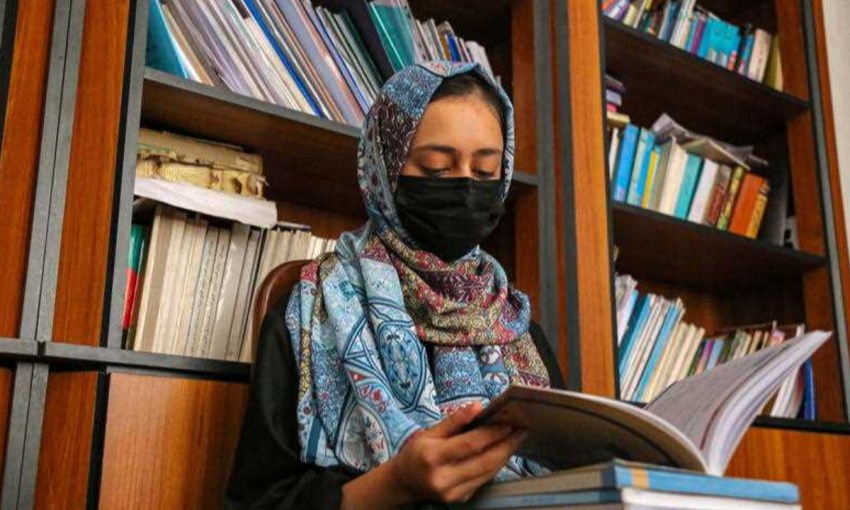Brave young women in Afghanistan have fought back against the Taliban’s ban on education and books by forming underground book clubs. Book lovers throughout South Australia can join their cause.
Escaping an education blackout in underground book clubs
Imagine being denied the right to read. To have the opportunity to lose yourself somewhere between the words on a page and the images created by your imagination. To learn about history, the world, and fundamental human rights. This is the reality for girls and women living in Afghanistan.
This week marks the anniversary of the basic human right to education being torn away from women in Afghanistan.
In 2021, as the Taliban regained control of Afghanistan, tears ran through the country as the brute force of the militant political and religious fraction removed access to books and education – a human right – for girls and women over the age of 12.
Zahra, a 16-year-old 10th grade student, studies at her Kabul home as she marks the second anniversary of the ban on girls going to higher secondary schools in Afghanistan this week.
More than 1.1 million young women were forced from the classroom, universities came to a standstill in protests, and scholarly men and educators walked out in solidarity for their wives, mothers, daughters, sisters, and friends.
The decision was a devastating threat to the education system that had made huge steps forward over the past 20 years.
But this oppressive law gave birth to a courageous movement – underground book clubs – that would inspire book lovers throughout Australia to join their cause.
When a spike in enquiries came through the World Literacy Foundation’s Youth Ambassador Program, it found an inspiring group of eight brave girls, and passionate book lovers, around Kabul – the capital of Afghanistan – fighting back.
One of these girls speaking out against the violation of human rights is 12-year-old Yashfa.
“Since banning of books in my town, I am losing hope for my future dreams of an education and a better future. I wish to be able to read books again,” she tells the World Literacy Foundation.
Forming underground book clubs where they held reading sessions together in secret location to avoid prosecutions, became the only way they could access books. The group has continued to grow.
“There are these underground book clubs in Afghanistan where young people are sharing digital copies of books. The plan is to curate larger quantities of English and Dari – which is their local language – books,” says Andrew Kay, CEO of the World Literacy Foundation.
“Last year, we saw a spike in numbers [of enquiries] from Afghanistan. We started dialogue with them in search of some reasoning behind it, and asking how we can better support. They introduced us to what they were doing with the book clubs and spoke about the way they were working.
“That’s what really inspired us as an organisation… to put the spotlight on their situation and try and better resource, and help them in the plight that they face,” he says.
The result was groups of local book lovers from around Australia, including several people in South Australia, coming together to provide support to over 3000 girls in Afghanistan by providing access to books.
Andrew says raising awareness and allowing Afghan women to be connected to a wider global community is the aim of the campaign, which allows people to support through a monetary donation or authors donating digital books that can be sent via the underground book clubs.
According to data from the foundation, 750 million adults around the world lack basic reading and writing skills. Two-thirds of this figure accounts for women.
Afghanistan is the only country currently forbidding girls and women to access education.




